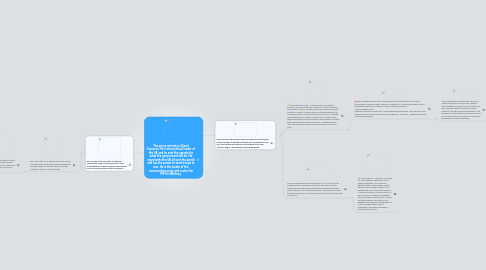
1. Theresa May Home office. She is in charge of policing and borders as well as counter terrorism and immagration. She sets the national policing plan every three years, this controls wages, recruitment and policing policy.
1.1. Nick Herbert Policing. Following the 2010 General Election, Nick was appointed Minister of State for Policing and Criminal Justice, working in both the Home Office and Ministry of Justice. On the Coalition forming between the Conservatives and Liberal Democrats in May 2010, Herbert was appointed as a Minister of State at the Home Office with responsibility for policing and at the Ministry of Justice with responsibility for criminal justice. To undertake this role, Herbert was appointed a Privy Counsellor on 9 June 2010.
1.1.1. West Yorkshire police. West Yorkshire Police is the territorial police force responsible for policing West Yorkshire in England. It is the fourth largest force in England and Wales by number of officers, with 5671 officers. West Yorkshire Police Authority contains 9 councillors, and 8 independent members. The councillors are appointed by the five borough councils in the area – Bradford, Calderdale, Kirklees, Leeds and Wakefield.
1.1.1.1. West Yorkshire police authority. The WYPA makes sure that local police and councils work together to prevent crimes in the local area. The key statutory duty for a police authority is to secure the maintenance of an efficient and effective police force in its area and hold the Chief Constable to account for the delivery of policing services.
1.1.1.1.1. Her majesty's inspectorate of constabulary. In England and Wales, Her Majesty's Inspectorate of Constabulary is responsible to the Home Office. The first inspectors were appointed under the County and Borough Police Act 1856; current statutory duties are defined in the Police Act 1996.The Inspectorate reports on the activities of the territorial forces of England and Wales and other bodies involved in law enforcement, such as the British Transport Police, the Civil Nuclear Constabulary, HM Revenue and Customs and the Serious Organised Crime Agency.
1.1.1.1.2. Independent police complaints commision. This inspectorate deals with complaints of police abuse, wrongful arrest, brutality and discrimination. It can also elect to manage or supervise the police investigation into a particular complaint and will independently investigate the most serious cases itself. While some of the IPCC's investigators are former police officers, the commissioners themselves cannot have worked for the police by law.[1] It has set standards for police forces to improve the way the public's complaints are handled. The IPCC also handles appeals by the public about the way their complaint was dealt with by the local force, or its outcomes. The IPCC was given the task of increasing public confidence in the complaint system. It aims to make investigations more open, timely, proportionate and fair.
1.2. Damian Green Borders and immigration. On 13 May 2010 he was appointed Immigration Minister in the newly formed Conservative-Liberal Democrat coalition government under David Cameron. He says that the home office will try to make sure the police and UK border agency reduce people trafficking into the UK.
1.2.1. UK border agency. Created in 2008 the UK border agency deported 69000 illegal immigrants. The UK Border Agency (UKBA) is the border control agency of the United Kingdom (UK) government and an Executive Agency of the Home Office. It was formed on 1 April 2008 by a merger of the Border and Immigration Agency (BIA), UKvisas and the Detection functions of HM Revenue and Customs. The decision to create a single border control organisation was taken following a Cabinet Office report.
2. Eric Pickles is the secretary of state for communities and local government. He is responsible for council housing, overviewing local councils and small part fire services.
2.1. Bob Neil is the MP in charge of fire and rescue. He deals with recruitment, pay and equipment and appliances for the fire service. He has a budget of around 4 billion pounds.
2.1.1. North Yorkshire Fire and rescue service. North Yorkshire fire and rescue service has around 44,000 fire officers and only 3.9% of these are female, the service also has just over 3,600 appliances at its disposal.
2.1.1.1. North Yorkshire Fire and Rescue authority service. In the United Kingdom the terms Local Authority Fire and Rescue Service, County Fire & Rescue Service or Public Fire and Rescue Service refer to a fire and rescue service provided and operated by a county or metropolitan council to serve the public in an emergency. They are the fire service which respond to emergency 999 calls from members of the public.
